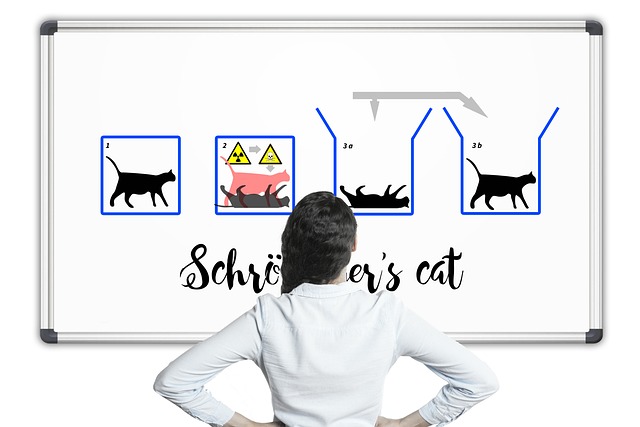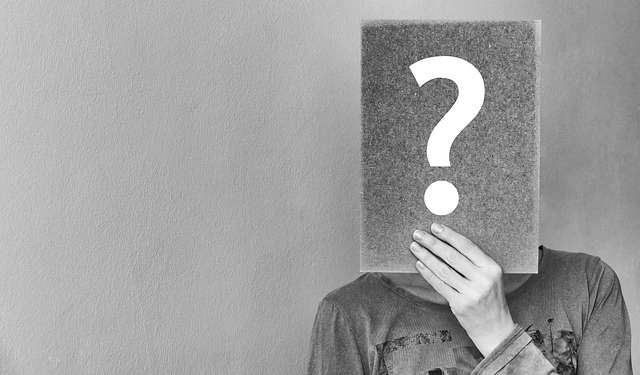What Is a Paradox? (With Examples)

Paradox Definition: A paradox is a statement that appears to be absurd but may actually contain a core of truth. It typically involves two contradictory statements that can both be true at the same time.
Paradoxes are often used in literature to illustrate seemingly clashing situations or ideas that challenge our expectations about truth and reality.
What Does Paradox Mean In Simple Terms?
The word paradox comes from the Greek para (“contrary to”) and doxa (“opinion”.) The reason it’s a great construct for literature and storytelling in general is that it can be easily used to deliver subtext.
One example is the famed story of the race between the tortoise and the hare, where it is assumed that the hare will win due to its agility and yet the tortoise wins in the end.
This story teaches us that in order to achieve a long-term goal, it’s not always about being the fastest or most powerful that matters; sometimes it’s more important to be consistent and persistent in order to get the job done.
A paradox can also unearth hidden truths about a plot:
In the classical story of the emperor’s new clothes, a vain emperor is duped into thinking that he is wearing the most beautiful clothes, even though he is actually naked.
The hidden truth in this story is that people are often reluctant to contradict a figure of authority, even when they’re obviously wrong.
Finally, a paradox can be used as a way to reveal clues about a character:
For example, Hamlet’s famous paradox “I have to be cruel to be kind,” shows that he feels that avenging his father’s murder by his uncle Claudius is an act of kindness for his mother, and yet it’ll bring tragedy into her life since she’s now married to him.
How Do You Identify a Paradox?

In general, a paradox can be identified by a statement that seems to contradict itself, and yet, it makes us ponder about it beyond reading the words.
This is typically used by writers for dramatic or rhetorical effect in order to prompt us to think more deeply about our world.
For example, “The only constant is change” is a paradox while the contradictory statement “This was bittersweet” is based on an oxymoron instead.
What Is the Difference Between an Oxymoron and a Paradox?
The difference between an oxymoron and paradox is that the former typically involves two contradictory words or ideas that are simply put together as a qualifier for something else, like “awful good.”
An oxymoron isn’t intended to carry a deeper meaning or conceal a truth that’s not obvious in plain sight.
A paradox, on the other hand, consists of a self contradictory statement that’s meant to challenge our perceptions of truth. For instance, the statement “I always lie” is paradoxical because even though it’s stated as a truth, in reality it’s a lie.
Let’s explain: If I “always” lie, then by extension I can “never” tell the truth. Therefore, the statement “I always lie” cannot be stated as a truth and it’s therefore a lie.
Oxymorons are often used in literature for dramatic effect while paradoxes are typically used to explore ideas or situations and prompt us to think more deeply about our world.
Is Irony the Same as Paradox?

No, irony and paradox are not the same. Irony involves a difference between what’s expected or intended and what actually occurs.
Writers can use irony for humorous purposes (e.g. talking about a marriage counselor who just filed for divorce,) or for dramatic effect (e.g. when Romeo kills himself thinking Juliet is dead, when in reality she’s not.)
What Are Some Common Types of Paradox?
Paradoxical statements can be used by writers to achieve different literary effects. Here are some common uses with examples:
Verbal Paradox
This type of paradox often uses figurative language to create statements or questions that are meant to be puzzling or thought-provoking.
Example: “Less is more.”
Antinomy
This kind of paradox involves two statements that appear to be mutually exclusive, but which are both true.
Example: “You can’t lose what you never had.”
Self-Referential Paradox
This paradox refers to a statement that seems contradictory at first sight, but upon closer examination isn’t.
Example: “You need money to make money.”
Veridical Paradox
A veridical paradox is a statement that seems contradictory or even false but in actuality the statement is true. Veridical paradoxes can be used to highlight the limitations of logic or to show that events don’t always happen in a logical order.
Example: “The more things change, the more they stay the same.”
Falsidical Paradox
A falsidical paradox is a statement or question that appears to be logical at first but upon closer examination leads to an impossibility.
Example: “Which came first, the chicken or the egg?”
Examples of the Use of a Paradox in Literature

“All animals are created equal, but some are more equal than others” — Animal Farm, by George Orwell
“War is peace” — 1984, by George Orwell
“There are two tragedies in life. One is to lose your heart’s desire. The other is to gain it” — Man and Superman, by George Bernard Shaw
“I could just remember how my father used to say that the reason for living was to get ready to stay dead a long time” — As I Lay Dying, by William Faulkner
“I’ve had nothing yet, so I can’t take more” — Alice in Wonderland, by Lewis Carroll
“Being natural is such a difficult thing to keep up” — The Importance of Being Earnest, by Oscar Wilde
“My only love sprung from my only hate” — Romeo and Juliet, by William Shakespeare
“I know one thing, and it’s that I know nothing” — Socrates
Examples of Paradoxical Expressions Used in Everyday Life

“The pen is mightier than the sword”
“The more you try to keep someone close, the further away you’ll push them”
“People who can’t trust, can’t be trusted”
“Your enemy’s friend is your enemy”
“Take care of yourself so you can take care of others”
“What a shame that youth should be wasted on the young”
“The only certainty is that nothing is ever certain”
“Damned if you do, damned if you don’t”
“Wherever you go, there you are”
In conclusion
Paradoxes can be used in literature to engage readers at a deeper level of thought by challenging their assumptions about truth and reality.
By presenting a contradiction or absurdity, paradoxes can make readers rethink the world around them and explore the implications of their assumptions.
But above all, paradoxes are memorable. See if you can come up with one of your own!
 Harry Wallett is the Managing Director of Cascadia Author Services. He has a decade of experience as the Founder and Managing Director of Relay Publishing, which has sold over 3 million copies of books in all genres for its authors, and looks after a team of 50+ industry professionals working across the world.
Harry Wallett is the Managing Director of Cascadia Author Services. He has a decade of experience as the Founder and Managing Director of Relay Publishing, which has sold over 3 million copies of books in all genres for its authors, and looks after a team of 50+ industry professionals working across the world.
Harry is inspired by the process of book creation and is passionate about the stories and characters behind the prose. He loves working with the writers and has shepherded 1000s of titles to publication over the years. He knows first-hand what it takes to not only create an unputdownable book, but also how to get it into the hands of the right readers for success.
Books are still one of the most powerful mediums to communicate ideas and establish indisputable authority in a field, boosting your reach and stature. But publishing isn’t a quick and easy process—nor should it be, or everyone would do it!
A professional grade book takes 250+ individual tasks to complete. Cascadia is an expert in every single one of them. Do you want to harness our expertise to launch your book into the stratosphere? Chat with us!







Leave a Reply